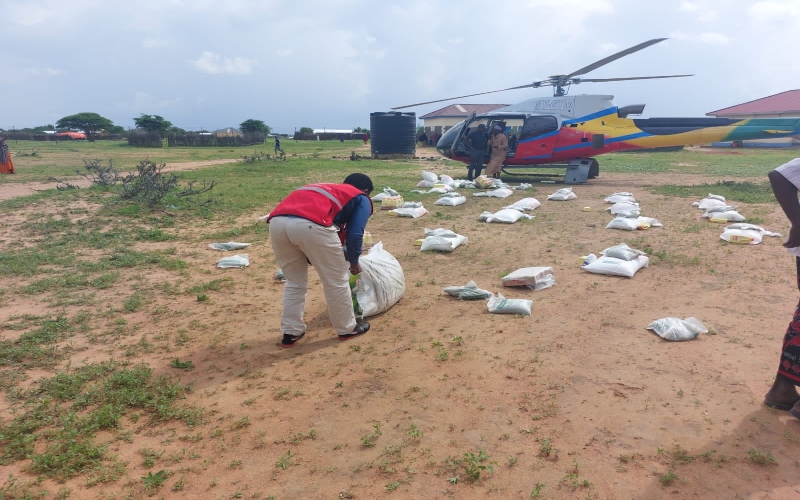Jobs created in Africa mostly low-quality, informal - World Bank

In its latest edition of Africa’s Pulse report, the lender reckoned that wage jobs and productive employment are scant in the region, as medium-sized and large firms that offer these jobs remain few.
Jobs being created in Sub-Saharan Africa are mainly low-quality, informal and lack long-term economic benefits, the World Bank has warned.
In its latest edition of Africa’s Pulse report, the lender reckoned that wage jobs and productive employment are scant in the region, as medium-sized and large firms that offer these jobs remain few.
More To Read
- Parliament moves to protect consumers from exploitative agreements
- World Bank warns political interference weakening Kenya’s state-owned enterprises
- WHO calls for urgent action to achieve universal health coverage by 2030
- African countries take lead in push toward universal health coverage for 1.5 billion people by 2030
- Developing countries’ debt servicing cost hit 50 year high on high interest
- Ruto backs IMF partnership as key to Kenya’s debt, economic reforms
As a result, the World Bank said most new labour market entrants find work in low-productivity, informal sectors that offer limited prospects for rapid income growth, reduced poverty, and improved social mobility.
“Wage-paying jobs make up only 24 per cent of employment, and less if Southern Africa is excluded,” the lender said in the report.
This, amidst the region experiencing the fastest demographic expansion in the world, according to reports, with over 620 million people expected to join the labour force between 2025 and 2050.
“The impending population boom further amplifies the challenge countries in the region face, given their inability to provide jobs for the current population,” the lender added.
Additionally, it argued that the region’s current growth patterns are failing to generate enough quality employment.
A one-percentage-point growth in GDP now translates to only a 0.04 percentage-point increase in wage employment, a gap that underscores the widening disconnect between economic expansion and job creation.
To address this, the World Bank called for a structural shift toward a growth model anchored in medium-sized and large firms, businesses capable of unlocking economies of scale and generating more productive jobs.
“With 73 per cent of employment concentrated in own-account and family-run enterprises, the region lacks the firm size and efficiency needed to drive productivity and expand formal job creation at scale. This calls for a structural shift in Africa’s growth model.”
It added that providing jobs at scale for the millions joining the labour force will require addressing the core issues constraining private sector development.
These include the provision of foundational infrastructure and skills, a conducive business environment, and capable states and institutions.
On GDP growth, the region is reported to have sustained its momentum despite heightened global policy uncertainty.
Following a trough in 2023, regional activity is poised to expand at 3.8 per cent in 2025, up from 3.5 per cent in 2024, and accelerate further to an annual average rate of 4.4 per cent in 2026–27.
Notably, the latest forecast is an upward revision by 0.3 percentage points compared to the April 2025 projection.
The improvement is broad-based, with 30 of 47 countries seeing upward revisions to their growth forecasts.
Major economies such as Ethiopia (0.7 percentage point), Nigeria (0.6 percentage point), and Côte d’Ivoire (0.5 percentage point) have experienced significant upgrades.
Top Stories Today












































